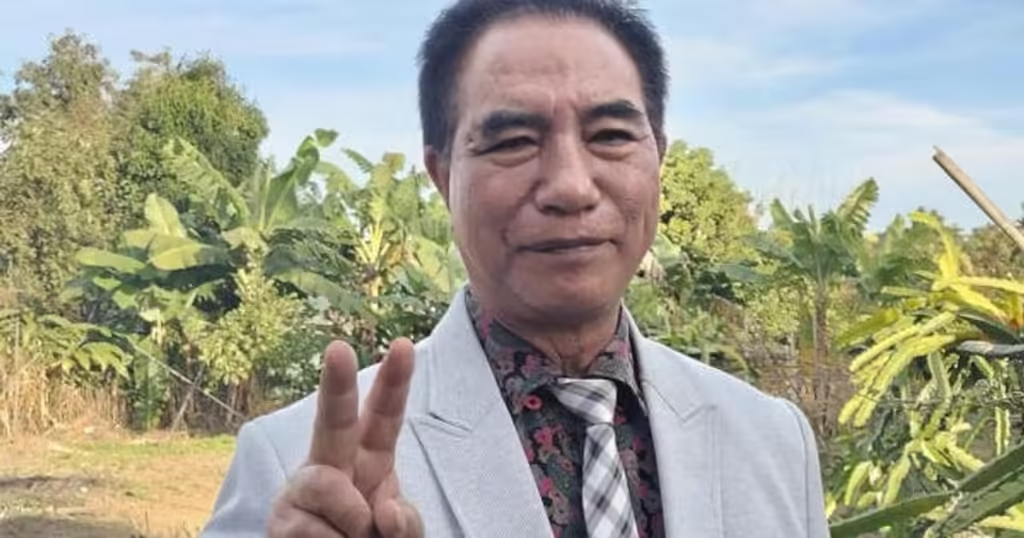In a major move to boost the local economy, Mizoram Chief Minister Lalduhoma has unveiled the ‘Bana Kaih’ financial scheme. This new initiative is designed to provide financial assistance to small entrepreneurs and farmers across the state, aiming to enhance economic growth and support sustainable livelihoods.
Overview of the ‘Bana Kaih’ Scheme
The ‘Bana Kaih’ scheme represents a major effort by the Mizoram government to address the financial needs of small-scale businesses and agricultural enterprises. Key aspects of the scheme include:
- Purpose: The primary goal of the ‘Bana Kaih’ scheme is to offer financial support to small entrepreneurs and farmers who play a crucial role in Mizoram’s economy. By providing funding and resources, the scheme aims to foster entrepreneurship, boost agricultural productivity, and support economic development at the grassroots level.
- Eligibility: The scheme is targeted at small entrepreneurs and farmers who may lack access to traditional financial services. Eligibility criteria include factors such as the scale of business, agricultural activities, and economic need.
- Financial Support: The ‘Bana Kaih’ scheme offers various forms of financial assistance, including grants, low-interest loans, and subsidies. The specific amounts and types of support will be determined based on the needs and applications of the beneficiaries.
- Application Process: Interested individuals and businesses can apply for the scheme through designated government channels. The application process is designed to be accessible and user-friendly, with support provided to help applicants navigate the requirements.
Objectives of the ‘Bana Kaih’ Scheme
The ‘Bana Kaih’ scheme is driven by several key objectives:
- Supporting Small Entrepreneurs: Small businesses are vital to Mizoram’s economic fabric. The scheme aims to provide the necessary financial support to help these entrepreneurs expand their operations, improve their business practices, and increase their contributions to the local economy.
- Enhancing Agricultural Productivity: Farmers are a cornerstone of Mizoram’s economy. The scheme seeks to enhance agricultural productivity by offering financial assistance for modern farming techniques, equipment, and infrastructure improvements.
- Promoting Sustainable Development: The initiative aligns with the government’s broader goals of sustainable development. By supporting small businesses and farmers, the scheme aims to create a more resilient and self-sufficient economy.
- Boosting Employment: By providing financial resources and support, the scheme is expected to stimulate job creation and enhance livelihoods within the state. Increased business activities and agricultural productivity can lead to new employment opportunities and economic growth.
Benefits of the ‘Bana Kaih’ Scheme
The ‘Bana Kaih’ scheme is expected to bring several benefits to small entrepreneurs and farmers:
- Increased Financial Accessibility: Many small entrepreneurs and farmers face challenges in accessing traditional financial services. The scheme provides an alternative source of funding, making it easier for them to secure the resources they need.
- Business Growth and Innovation: Financial support can help businesses invest in new technologies, expand their operations, and innovate. This can lead to increased competitiveness and economic success for small enterprises.
- Improved Agricultural Practices: Farmers can benefit from financial assistance for upgrading their agricultural practices, purchasing modern equipment, and improving infrastructure. This can lead to higher yields and more efficient farming.
- Economic Resilience: By supporting local businesses and agriculture, the scheme contributes to the overall economic resilience of Mizoram. A diverse and thriving economic base helps mitigate the impact of external economic shocks.
Implementation and Monitoring
Effective implementation and monitoring are crucial for the success of the ‘Bana Kaih’ scheme:
- Implementation: The scheme will be administered by relevant government departments and agencies. Implementation teams will be responsible for processing applications, disbursing funds, and providing support to beneficiaries.
- Monitoring: Regular monitoring and evaluation will be conducted to assess the effectiveness of the scheme. This includes tracking the impact on businesses and agriculture, addressing any issues that arise, and making necessary adjustments to improve outcomes.
- Feedback Mechanism: A feedback mechanism will be established to gather input from beneficiaries and stakeholders. This will help ensure that the scheme remains responsive to the needs of the community and achieves its intended goals.
The launch of the ‘Bana Kaih’ scheme has been met with positive reactions from various stakeholders:
- Entrepreneurs and Farmers: Many small entrepreneurs and farmers have welcomed the initiative, viewing it as a much-needed support for their businesses and agricultural activities. The scheme is seen as a valuable opportunity to enhance their economic prospects.
- Local Leaders and Organizations: Local leaders and community organizations have expressed support for the scheme, recognizing its potential to drive economic development and improve livelihoods within Mizoram.
- Economic Analysts: Analysts and experts have noted the potential impact of the scheme on Mizoram’s economy, highlighting its role in fostering entrepreneurship, boosting agricultural productivity, and promoting sustainable development.
The ‘Bana Kaih’ financial scheme, launched by Mizoram Chief Minister Lalduhoma, represents a major step in supporting small entrepreneurs and farmers in the state. By providing targeted financial assistance, the scheme aims to foster economic growth, enhance agricultural productivity, and contribute to sustainable development.

